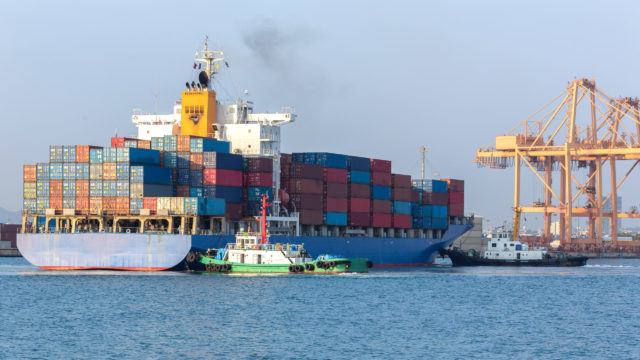Trump’s presidency has seen U.S. trade policies return to a bygone era of protectionism. At the start of July, the U.S announced $34 billion of tariffs on Chinese goods, suggesting that Trump has China firmly in his sights.
With $16bn more in the pipeline and Trump advising his administration to prepare to collect a further $200bn worth of Chinese tariffs, the U.S.-China trade war is already in full swing.
The U.S. sees China as a threat because of its rapid rise as a colossal exporter.
The figures alone are striking: China already exports almost seven times as much as it did at the start of the 21st Century and since 2013, it has been the world’s largest trading nation.
What’s more, U.S. firms have largely failed to penetrate China’s expanding consumer market which, after the U.S., is the world’s second biggest. Trump has often blamed the World Trade Organisation (WTO) for allowing China to access overseas markets whilst being protected by WTO rules.
Trump feels this is unfair – he argues that there was a missed opportunity to force China to open their markets when they joined the WTO in 2001.
Whilst building a time-machine and travelling back to 2001 is even beyond the capabilities of the U.S. president, imposing protectionist policies to restrict the sale of Chinese goods in 2018 is not.
According to economists, an all-out US-China trade war could damage growth in both economies by between 0.25% to 0.5% and the effects of these policies are likely to spread across the globe.
The worst impacts will be in the Far East, in countries like South Korea, Singapore and Taiwan where an economic downturn in China could cause widespread disruption to local supply chains.
Here in the UK, the effects are also likely to be felt, with the U.S. and the British economies remaining closely intertwined. The U.S. is the UK’s largest export market at £100bn, over double the amount of goods the UK exports to the Germans, who come in second.
Any downturn in the U.S. economy, then, has a large bearing on the success of British firms who export goods across the Atlantic.
The exact effects of this on the British economy are, at this stage, unknown. However, with the ever increasing likelihood of a hard Brexit, there is a chance that UK firms will rely even more on the U.S. market to export their products.
An economic crisis in the States could prove incredibly damaging to Britain; especially if it becomes harder for Britain to trade with its nearest neighbours following Brexit.

Comments on What does the US trade war with China mean for the rest of the world?
There are 0 comments on What does the US trade war with China mean for the rest of the world?